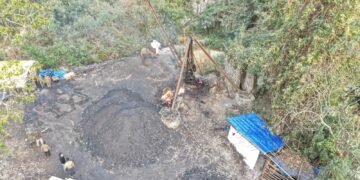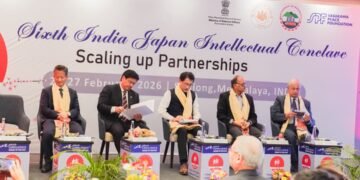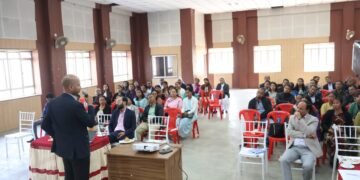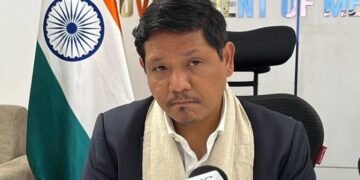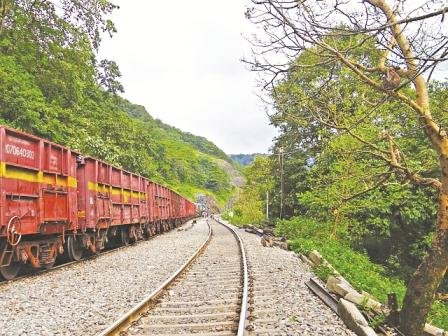The introduction of railways in Meghalaya is a subject that should be judged based solely on logic and not emotion, former Home Minister RG Lyngdoh told Highland Post today.
“It is not up to me to welcome the railways or not. All I’m asking is to look at the matter logically and not emotionally and to weigh the pros and cons,” he said.
Pressure groups and certain political parties are opposed to the coming of railways in Khasi-Jaiñtia Hills as they fear that it will open up the way for mass immigration, which would skew Meghalaya’s population balance away from the indigenous tribals.
Recently, the ‘No to rail’ brigade even rejected the Chief Minister’s suggestion that a goods service be at least introduced if the public are still wary about a passenger service.
“Why this resistance and opposition to goods train?” Lyngdoh wondered, considering the economic angle. “If we look at Nagaland, the price of goods in Dimapur is half of what it is in Shillong because of the presence of railways even though the standard of living is much higher here.”
The agriculture sector, in which the majority of Meghalayans are involved in, would benefit greatly, Lyngdoh added, if it could be connected to places like New Delhi through rail. Importers would also be able to benefit from cheaper goods and they would be compelled to pass on these savings to the buying public.
According to the Congressman, there is a tendency for a knee-jerk reaction when it comes to the railways.
“We must look at the practicality of whether the good outweighs the bad or vice-versa and take decisions rationally and not emotionally. It’s illogical that just because it was opposed in the 1990s it should be opposed now. How much influx has been caused in a place like Dimapur through railways?” he stated.
There is also a need, he opined, for Meghalayans to be more confident in themselves and be willing to compete and surpass outsiders. “We should instead demand from the government training programmes that will make ourselves better equipped in whatever fields where we are lacking and not allow ourselves to always be guided by fear.”
“We already have laws that protect us. We just need to see that these already existing laws are strictly implemented and how to further improve them,” Lyngdoh added.



